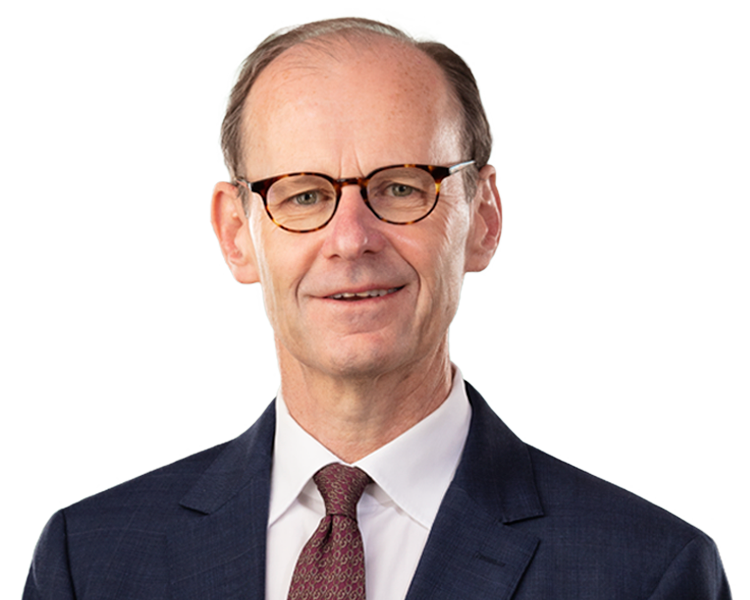07 Sep 2020
PODCAST: taking stock of ethical issues
As ANZ’s chief executive, and Chief Financial Officer before that, I have had hundreds of conversations over the past decade about banking strategy and investment. In that time, one major change I’ve noticed is the focus on the need for strong environmental, social and governance (ESG) policies.
What may have once been a final question as the meeting was ending is now frequently the first topic of conversation. And it’s a focus which has grown beyond corporate boardrooms to where it’s now integrated into every industry.
“It's becoming increasingly important for businesses to incorporate ESG into their normal business planning - it's no longer a side issue.” - Nathan Parkin
Ahead of ANZ’s annual ESG investor briefing, I caught up with Nathan Parkin – Co-founder and Investment Director of Ethical Partners – to discuss the interest in ESG from an investment perspective, the need for greater disclosures from companies and the types of businesses he would never invest in.
Click here for a transcript of this podcast
Going viral
Nathan says the last few years have exposed changes in the way society is responding to major issues including the COVID-19 pandemic, Black Lives Matter movement and major environmental reporting.
“It’s clear the pendulum has swung way too far in one direction in regards to inequality, opportunity, depletion of resources [and] financial disparity,” he says. “In some ways, that move was way overdue. This massive disruption has given people a chance to reimagine a different perspective… building back better with a stronger appreciation for nature, health and also the risks of mistreating those things.”
Nathan says the rise of youth voices is also “particularly loud” at the moment due to technology and a focus on leaving a “better world” for the next generation. He says businesses must take notice.
“It's becoming increasingly important for businesses to incorporate ESG into their normal business planning - it's no longer a side issue,” he says.
Building a framework
I often hear critics of ESG say that it’s a binary choice – you either focus on running a business or on the “soft” issues. But according to Nathan, and we agree, caring about the community doesn’t come at the cost of financial growth.
“We think companies which are conscious of being responsible in a social way, in a human rights way, in an environmental sense, usually have good governance to back that. So why wouldn't a more responsible and socially aware business have more success,” he explains.
“It's about identifying risks and opportunities. Successful businesses will do this and increasingly be aware of it. Ultimately, the businesses which haven't paid heed to customers in the wider community, their employees, their supply chains usually come unstuck over a period of time.”
Line in the sand
Of course, there are some businesses and industries that Ethical Partners avoid investing in – usually at the request of a client.
“The industries we generally avoid include fossil fuels, gambling, alcohol, weapons and tobacco,” he says. “We also look at country-based risks… including bribery and corruption. We think those things are important for transparency [and] for human rights practice but they're ultimately important to shareholder returns at the same time.”
However, Nathan says it isn’t always a “zero per cent” decision and that Ethical Partners carefully considers the risk-weighting and future of these issues in industries such as agriculture and mining.
“That is a major debate within ethical investing circles,” he says. “Some of those companies are going to be key to solving issues on a much broader basis… in developing technologies and programs that will solve some of the emissions problems.”
Growing disclosures
So how does a company like Ethical Partners decide whether or not to invest in a particular business or industry? It’s clearly not as simple as standard financial reporting given the complexities of the issues.
Nathan says his team has a systematic way of looking at issues across the full spectrum of companies being considered for investment. Some of the risks they consider include geography, human rights, modern slavery, supply chain transparency and carbon emissions targets. At the end of this review they produce a report for the company.
“Then we interrogate boards and management teams around what they think the report says on what they have done. [We ask] where are you going with [ESG] and what's your understanding of it? We try to cut through greenwashing to see what people really believe and what they see in our report,” he says.
“People running a business and a board will often know a lot about the balance sheet but they may not be up to speed on some of the ESG initiatives in the business. We often see a disconnect.”
Nathan says a key focus on transparency in reporting and disclosures is becoming increasingly important for businesses – particularly with climate change and carbon emissions.
For Nathan, those trends in ESG will persist however they will continue to shift and move as society’s expectations change.
You can hear more by listening to the podcast above.
Shayne Elliott is CEO of ANZ
The views and opinions expressed in this communication are those of the author and may not necessarily state or reflect those of ANZ.
editor's picks
15 May 2019
